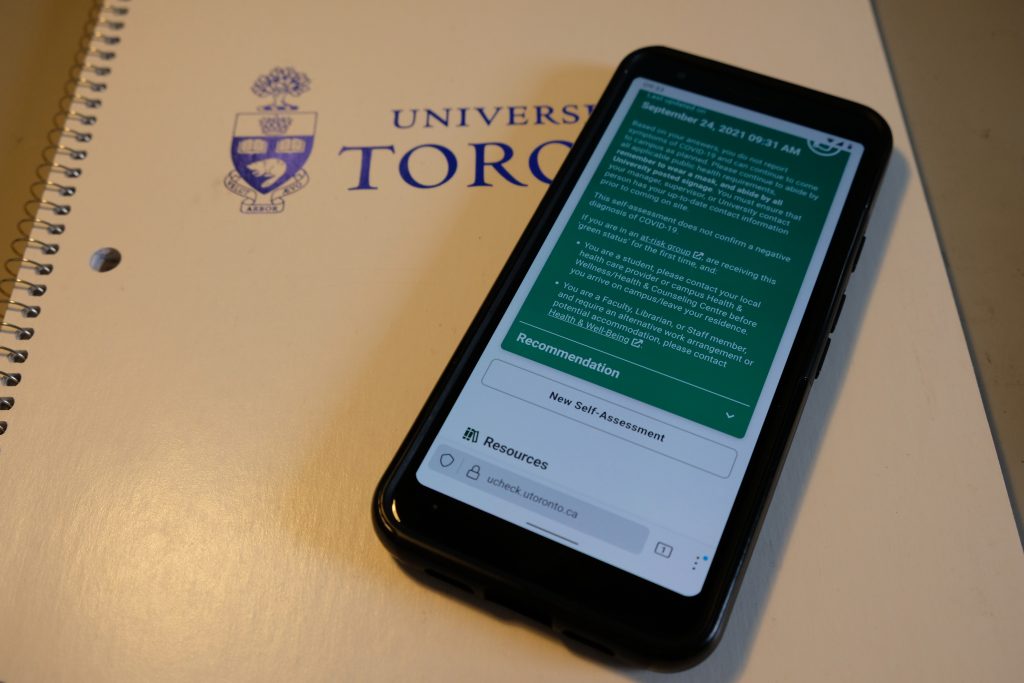The Faculty’s refusal to freely distribute Zoom links puts students at risk
Despite the ongoing global pandemic, the Faculty has made clear in their communications to students that in-person attendance is required. However, to conform to the University’s COVID-19 policies, the Faculty is required to provide students with accommodations if they are advised not to come to campus upon receiving a “red risk status” using the UCheck health screening tool. Unfortunately, the administration is inadequately equipped to respond to accommodation requests in a timely manner. The result is missed classes, increased health risks, and unnecessary stress during an already stressful time.

To give an example, a friend woke up feeling a bit sick and decided, for the sake of precaution, to stay home. When she emailed the law school’s Accommodations Committee, she did not receive a Zoom link until her class had already ended. This is not an isolated experience. Many other students reported that following their request for accommodations, they did not receive a link to their synchronous lecture until at least several minutes into the class.
According to Associate Dean Christoper Essert’s communication to law students on July 30, the law school recognizes that some students “might need to participate remotely for short periods of time for various reasons, including, but not limited to, their own health or the health of family members.” He noted that documentation “may or may not” be required in these cases but due to the “importance of ensuring that nobody come to campus while exhibiting any COVID symptoms, [the law school] anticipate[s] documentation will not be required when such symptoms are the reason for the request.”
In practice, to receive controlled Zoom link access to their classes, a student must email the Accommodations Committee ([email protected]) with a completed Red-Screen Accommodations Form. This form requires students to affirm that they have provided accurate information to the UCheck self-assessment tool and received a red screen. They must list classes for which “controlled-access to zoom links is requested” and also the requested length of time for the accommodation.
It is odd to predict how long one needs to recover from COVID-19 symptoms, especially given that a “red risk status” is not the same as a positive COVID-19 result that would require individuals to self-isolate for 14 days. In addition, the “controlled-access” granted means that only students who received approval by the Accommodations Committee may be sent and use the provided Zoom link. In other words, classmates cannot share Zoom links with one another nor can a student use a link past the time they received approval for.
Furthermore, the UCheck screening tool, which is the basis for receiving remote accommodations, only tests if individuals (or those in their household) are reporting symptoms of COVID-19. The tool does not take into account other reasons that students may feel uncomfortable attending classes in-person for the day, like the rise in positive COVID-19 case counts and hospitalizations.
Other law schools across the country have little problems giving their students the accommodations they need, especially during a public health crisis. Schools like Osgoode Hall not only provide students with Zoom links from the get-go but record all lectures—an accommodation that our Students’ Law Society has repeatedly advocated for to no avail.
Clearly, the Zoom links for each class are already generated and available. There is no good reason why the Faculty cannot distribute these links to students like they did last year, where some classes were also delivered-in person, at least at the beginning of the term.
Making accommodations needlessly difficult to obtain places students in an unnecessarily stressful situation and increases the risk to everyone’s health. If students know that getting a Zoom link to class is going to be a headache, and is not even guaranteed, they may opt to come to school even if they are feeling ill. If the Faculty truly cared about making the law school a safe place to visit, they would make accommodations more easily accessible.





